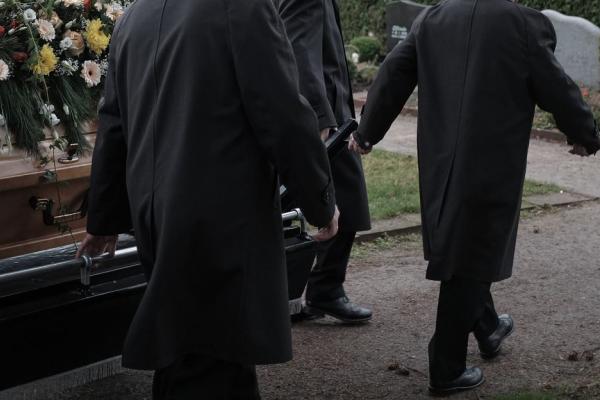
Who pays for a funeral if there is no insurance? A complete guide
You may have wondered at some point who pays for a funeral if a loved one dies without any insurance. At Áltima, we will provide you with a complete guide to explain this type of situation and how to proceed.
Why is it so important to understand who pays for a funeral if there is no insurance?
It is more common than we think for a person to die without having insurance for their funeral. In such cases, the cost of funeral services can be very high.
How much does a funeral without insurance cost? The price can vary significantly depending on a number of factors, so it is important for your family finances that you understand who pays for the funeral of a deceased person.
In Spain there is a very clear regulation regarding this, as established in article 1,894 of the Civil Code: ‘Funeral expenses proportionate to the quality of the person and the customs of the locality must be paid, even if the deceased has left no assets, by those who in life would have had the obligation to feed him or her’. Therefore, such an obligation is the responsibility of the family.

Legal obligations of relatives and heirs
As we have just said, it is the family of the deceased who pays for a funeral in the absence of insurance. Now let us look at the nuances of these legal obligations.
Main financial responsibility for costs
It is the legal heirs of the deceased who are responsible for paying for the funeral if there is no insurance. This may be spouses, children, parents or any person designated in the will.
Not all family members, therefore, are obliged to meet these costs. Siblings, for example, are excluded, unless they are recognised as heirs in the will.
This also means that any heirs, whether or not they are family members, must meet the cost of the funeral if there is no insurance.

Administration of the deceased's assets
It is possible to use the resources of the deceased person's estate to cover the costs of his or her own funeral. Money from bank accounts, real estate, vehicles and other assets, even before the distribution of the estate, can be used to pay for the funeral. This money can be withdrawn from the bank account even if the account has more than one holder.
However, it is the responsibility of the financial institution concerned to ensure that the money withdrawn is only used to cover funeral expenses, in order to avoid possible future complaints by the heirs. This is why banks will request quotes and make the corresponding transfer directly to the funeral company.
Consideración de las deudas pendientes
Es bastante habitual que los familiares hagan uso de estos recursos para pagar cuentas pendientes e incluso los costes del funeral.
Como sabes, las deudas de una persona no desaparecen con su fallecimiento, sino que se traspasan a la herencia y se pagan con ese dinero. Los herederos, por tanto, no solo reciben bienes y activos al aceptar una herencia, sino que, al mismo tiempo, aceptan las obligaciones financieras pendientes.
¿Quién paga un entierro si no hay seguro y los familiares no tienen dinero para afrontar el coste? Una opción es solicitar que el entierro lo pague el ayuntamiento de la localidad en cuestión. Se tendrá que pedir a los servicios sociales, aunque esos costes pueden ser reclamados posteriormente. Para acceder a esta ayuda hay que cumplir con unos requisitos, los cuales establece cada municipio.
Este caso se da cuando no existen familiares o nadie reclama a la persona fallecida. En esos casos, los ayuntamientos se hacen cargo de los gastos del sepelio y, después, tratan de localizar a los familiares y herederos para reclamar esa cantidad. Estas personas tendrán que acreditar que no disponen de recursos para afrontar los gastos del entierro.
En muchos lugares existen organizaciones sin ánimo de lucro y programas gubernamentales que ofrecen asistencia para funerales a personas sin recursos, ayudando con los costes o proporcionando información sobre las opciones más asequibles.
Recomendaciones financieras para el pago de un entierro sin seguro
Dado que quien paga un entierro si no hay seguro es la familia de la persona fallecida, es importante conocer todas las opciones financieras disponibles por si se presenta esta situación.
El coste en estos casos puede ser muy elevado, por lo que es esencial buscar soluciones de ahorro para que no suponga una elevada carga económica para los herederos.
Lo más recomendable es contratar un seguro de decesos para evitar esta situación a tus familiares o planificar tu propio funeral en vida, contratando los servicios funerarios deseados con anticipación.
Encontrar una compañía que ofrezca la máxima personalización te permitirá decidir los servicios que prefieres y ajustar los gastos a tu presupuesto personal.
La cremación suele ser la opción más económica, por lo que puede ser una buena alternativa para las familias si se busca abaratar costes.
Como última opción está la donación del cuerpo a la ciencia, pero para ello la persona fallecida debe contar con un carné de donante. De esta manera, la familia no asume el coste del entierro ni del traslado de su ser querido hasta las instalaciones de la institución correspondiente, como puede ser una universidad o una empresa de investigación, que será la que asuma este gasto. Eso sí, si se quiere realizar antes un funeral, esos gastos sí correrán a cargo de la familia.


